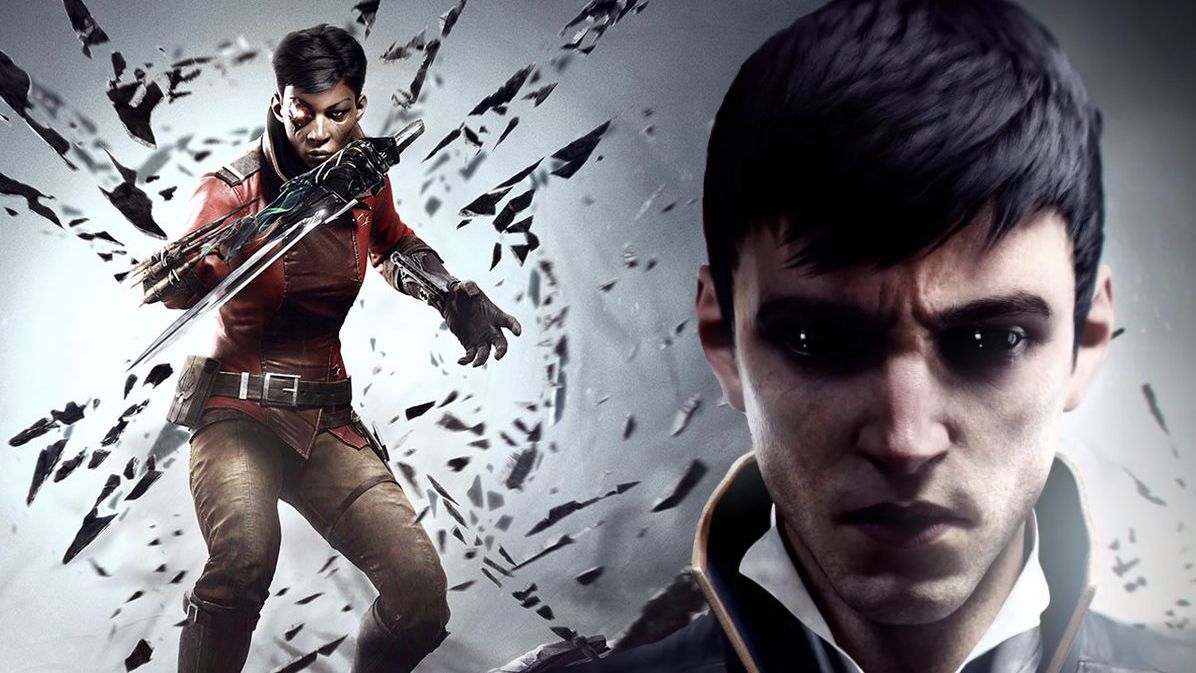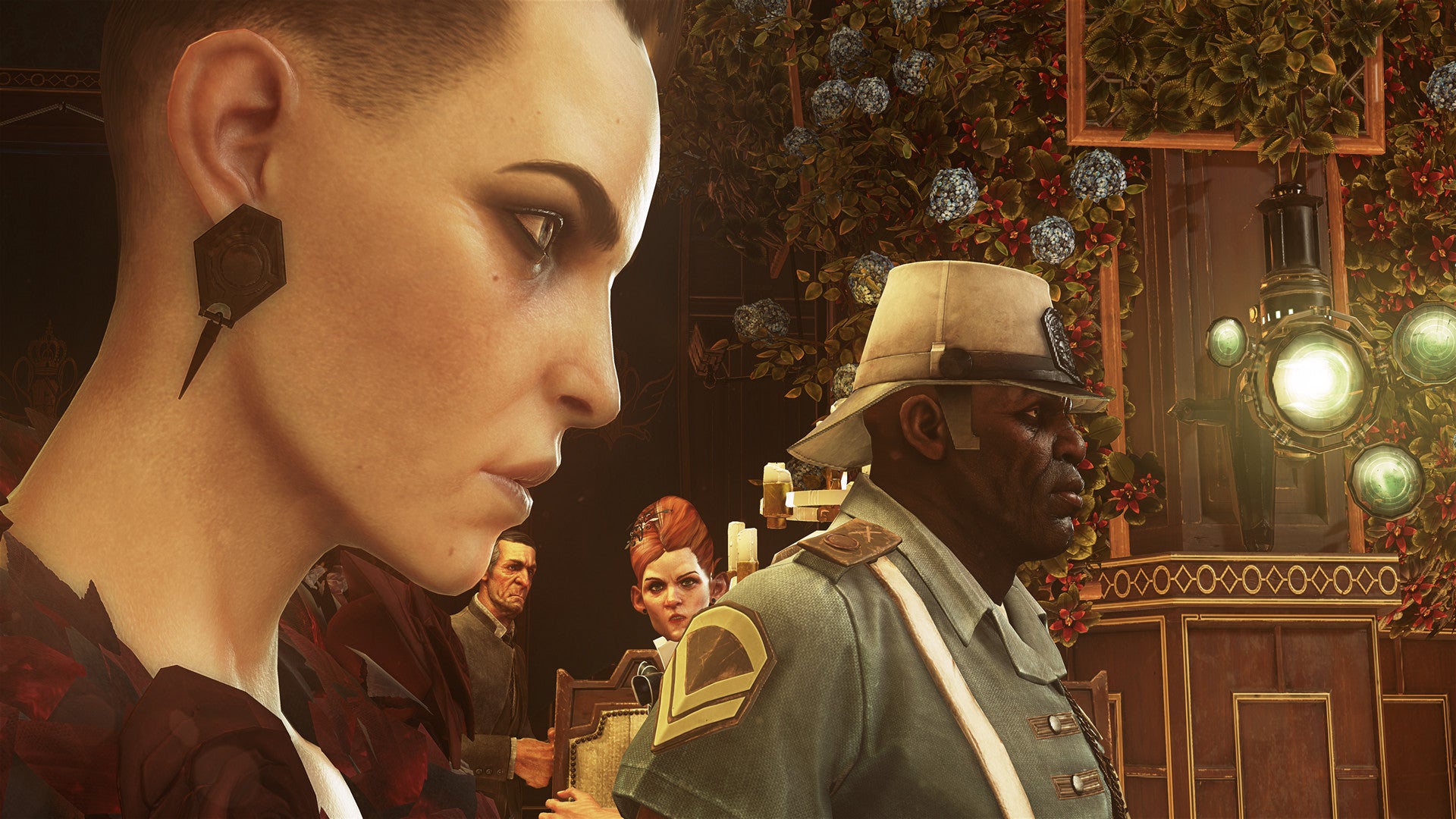Initially there was an idea that Daud would return as the playable character, as he did in Dishonored DLC Knife Of Dunwall, but eventually Arkane settled on Billie Lurk, Emily's companion from Dishonored 2. This focus opened up Death Of The Outsider in some pretty intriguing ways. Bakaba tells me that because Billie had already received her redemption arc in Dishonored 2, Death Of The Outsider's story could be about something more than that. This in turn meant Arkane was able to ditch the Chaos system of the previous games. This system responded to the player's actions in both Dishonored 1 and 2, with more lethal players getting higher Chaos levels that made the world more dangerous, while stealthy, non-lethal players got a lower Chaos level and less dark outcomes in the game as a result. But Death Of The Outsider isn’t a “test” of Billie Lurk, Bakaba explains, it is a mission for her, and so the player is free to use whatever methods they want to get the job done.
Selecting Billie as the protagonist was also key to something Smith believed in: whoever kills The Outsider shouldn’t bear his mark. “Giving Billie an independence from The Outsider seemed key, so he cannot just take away what he's given her,” explains Smith. “But from a development standpoint, that gave us a bunch of freedom to alter existing game systems. Dinga and I spent a lot of time weighing the pros and cons with the game designers. At the end of that major Dishonored arc, those game mechanical changes felt refreshing to us as creators, and to players, I think.”
But the first significant death Billie has to deal with isn't The Outsider. That honour falls on the shoulders of Daud, who dies in his sleep, off-screen. There was a lot of discussion about how Daud should die, Bakaba explains. “You know the person is sick and you go to work, you come back and their soul has left this world,” Bakaba says. “There is a sense of ineluctability in that situation that I thought was moving,” the designer says, adding that Daud’s death intentionally occurs right after the player has amassed their full arsenal, with a weapon capable of slaying a god. “As a player you feel in control, smart and indestructible. And then you feel the gut punch of realizing your old mentor has just died.”
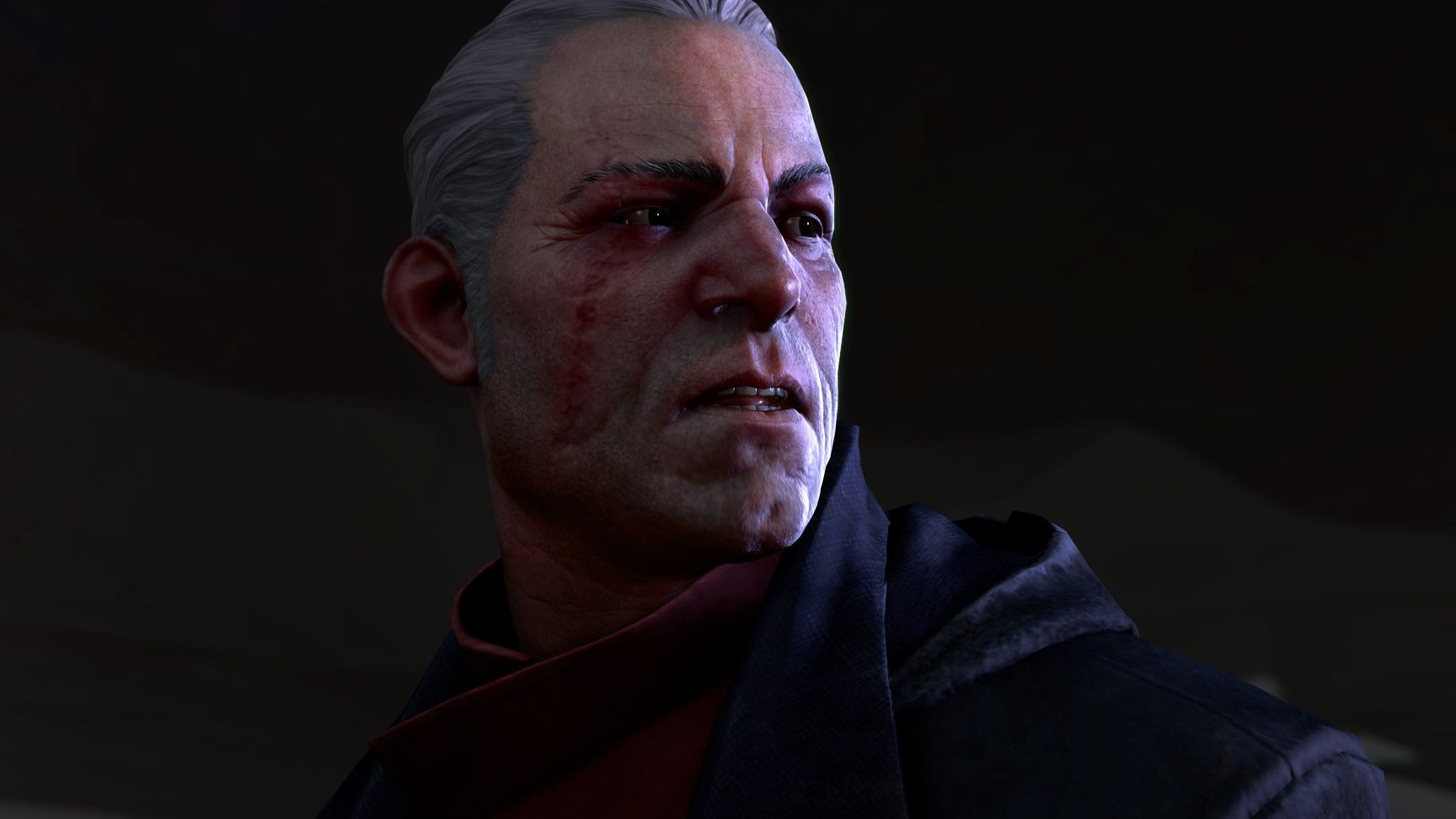
Daud's death is a significant moment for the player.
Killing a god is no easy task, with or without a mentor. Since the first Dishonored arrived in 2012, opinion on The Outsider himself has been somewhat split: is he an enticing trickster, intent on uprooting society with Faustian deals? Or is he himself a victim, trapped in increasingly violent cycles as those with his blessing impose their will on the world?
Monforton, who played the first games from a fan perspective just like the rest of us, immediately shoots down the idea of The Outsider as a trickster. “If you look at what he offers you and the language he uses around it, he is not lying to you or trying to tempt you into particular choices which will have bad or chaotic outcomes for you,” Monforton explains. Rather, she says, The Outsider is interested in what those who he gives his blessing to will do. It’s very true that while The Outsider gives the player supernatural tools and abilities throughout Dishonored and Dishonored 2, it’s always squarely in the hands of the player what they do with them.
"Once you know his history, it's hard not to view The Outsider as a victim too."
In fact, all agree that The Outsider has always been a tragic figure, with Megill (who has since gone on to work on
Control and the upcoming new
Fable game) noting that, "Once you know his history, it's hard not to view The Outsider as a victim too." Smith explains that even as far back as 2010, he already saw The Outsider as a sympathetic victim, and both himself and writer Ricardo Bare wanted to draw upon the short story
The Ones Who Walk Away From Omelas by Ursula K. Le Guin. This work of fiction depicts a utopian city called Omelas, whose prosperity and happiness depends entirely on the perpetual suffering of a single child. The citizens all know about the child, made to suffer alone in darkness and filth, and while a few end up leaving, most accept it as a necessary sacrifice.
Near the climax of Death Of The Outsider you discover there’s an entire cult linked to The Outsider (called, simply enough, the Cult Of The Outsider, though they also operate as the occult Eyeless gang) and they’ve only gone and secured an entrance to the Void itself. “These people aren’t religious fanatics who worship The Outsider, but scholars who study him. They don’t revere The Outsider so much as require him,” explains Monforton, adding that the cult itself embodies the idea of ancient religious mysteries, which one can only hope to glean knowledge of by dedicating themselves to the organisation. It also helps that Monforton just happened to be in the middle of writing a PhD on ritual sacrifice and collective violence at the time, melding the language she’d learned over the last few years to bring to life the cult's “ivory tower” attitude.
Bakaba explains it from another angle, adding that the idea was almost to have “mystical mundane people.” The Whalers and Witches in previous Dishonored games used magic while everyone else "seemed a bit disconnected from it", so it was fun for the developers to create enemies that use Bone Charms just like the player does. "We wanted them to look almost like real people, but have their fascination for the Void taint them physically," he says, remarking that, had the cultists researching the Void stayed there for a few centuries or so, they might’ve just evolved to the big hunks of rock you see floating around in there.
Indeed, some elder cultists who live there permanently have already become the Envisioned, humanoid creatures that look like walking shards of dark rock, and impale Billie if she gets too close. Megill always liked this sense of irony that came with the Envisioned: as they gain a foothold in the Void, they lose their grip on reality. “By seeing into the unknown, they lose sight of the known,” she adds.
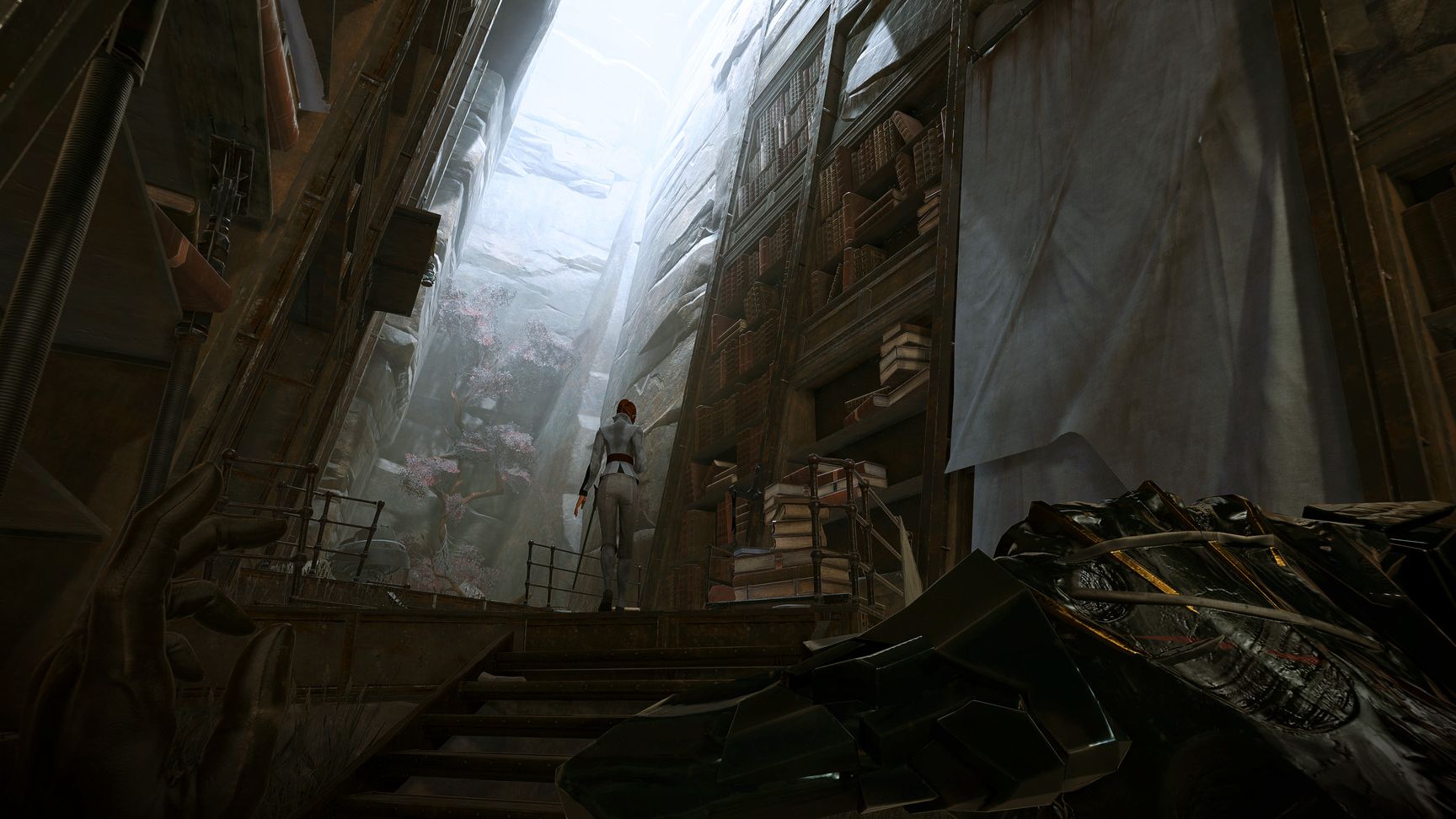
Part of the Cult's vast research library, a cold and unhomely place.
It’s around this time the player becomes aware there’s another way to end The Outsider. Over the course of the game, Billie learns that The Outsider had a life before he ascended to his place in the Void, but this life was snatched away from him when the Eyeless sacrificed him as a teenager. Duval was "really into the idea of killing god," while Monforton was more into the forgiveness angle: "Of course I always play non-lethal in those games, of course I think that killing anyone even for punishment is wrong, and never a solution. But killing God? I wouldn’t pass that chance."
Duval says this made it interesting working on the concept with Monforton, who herself comments that, "I think it is always important to open the space for the victim to be rescued." And for Smith, the non-lethal option was "just also really important to know that we saw him as a tragic figure." Megill underscores this point, explaining that, "In a game that explores what redemption looks like, it would be wrong to end The Outsider without giving him the chance that others had."
But there was a lot of debate about how to implement the non-lethal method of returning The Outsider to his human form. Duval says that game designers at Arkane proposed ideas like “magic stones” and other “gamey” things like intricate mechanisms that could save The Outsider from, well, being The Outsider.
"In a game that explores what redemption looks like, it would be wrong to end The Outsider without giving him the chance that others had."
In the end, Duval proposed whispering The Outsider's name as the way to return him to his human form, a revelation that was also a relief. “It felt meaningful and elegant enough,” says Megill. “Even if at first there was some confusion among the team, because when I explained that the mark of The Outsider was actually his real name in an ancient alphabet, some people understood that The Outsider was actually named Mark... which was, well, a bit underwhelming!”
Monforton also reveals that the in-game researcher whose work reveals name of The Outsider is a tribute to one of her favourite high school English teachers, Mr. Malchiodi. The name translates to “bad nails” in Italian, meaning the crucifixion nails, something Monforton considers quite apt considering how often she thinks of The Outsider as an Eldritch, Christ-like figure.
For every non-lethal ending in Dishonored, though, there’s a pistol held to the back of a head or a knife gliding across a throat for an easier solution. This method presents itself as stabbing The Outsider with the very blade that made him, the one that the cult used to sacrifice the boy he used to be all those centuries ago.
Megill describes a very different lethal ending to the one we saw in the final game. “When Arkane first described his death to me, it felt bizarrely like a minor plot point,” she explains. “Billie killed him, you blinked, and it was over. Smash cut to the end of the game.” This didn’t sit right with Megill, especially when she knew The Outsider was so beloved to fans of the Dishonored series - noting that some even call him their “moody eldritch boyfriend”. So Megill challenged this point to both Smith and Duvall, and was incredibly nervous about it at that, being a contract writer approaching the two creative leads who she’d only just been introduced to, in order to change the very climax of the story they had established.
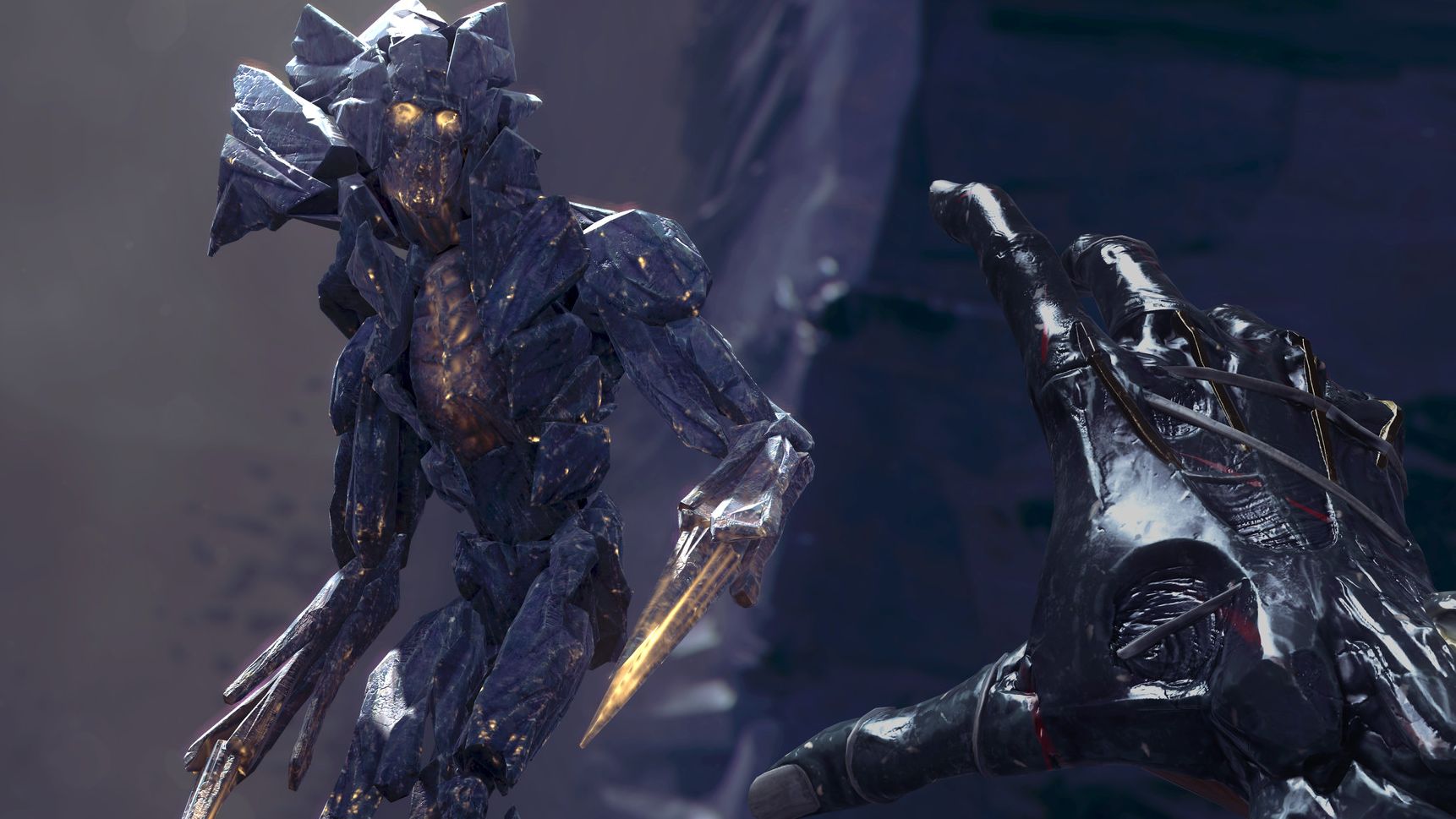
Smith and Duval were both open to feedback, though, and actually ended up changing the entire lethal ending of Death Of The Outsider. Megill and company formed the previously unceremonious ending into something that was far kinder to The Outsider himself, and allowed the player time to mourn and regret his demise. The final scene after a lethal ending has Billie and Daud ruminating on how the world will change without The Outsider, if at all, while Billie notes that killers like them never will. In a closing cinematic, Billie acknowledges that perhaps this ending isn’t fair to The Outsider himself, and although she’s “evened the score,” she’s still just a murderer.
As the final Dishonored game, Death Of The Outsider is "the resolution of a pretty big arc," says Smith. "Starting with Dishonored, going through Knife of Dunwall and Brigmore Witches, then Dishonored 2; showing the costs of some of those actions, then final stages of redemption, trying to get players to feel empathy for the characters involved, and finally just the opportunity to shuffle the board."
For Megill, it’s also a question of getting the player to answer some towering questions. She describes herself as someone who was always fascinated by Dishonored’s moral world, where there are so few “good” choices to be made by the player, and so many characters that are "grey-shaded", as Megill puts it, but still likeable. "Games tend to paint characters in black and white for ease of storytelling. You know exactly where you stand with a paladin or a villain, right? I wanted to honour the game’s greyness. I wanted my work on the project to continue those ethical explorations. Every aspect of Death Of The Outsider is about the struggle to find your path toward either light or dark."
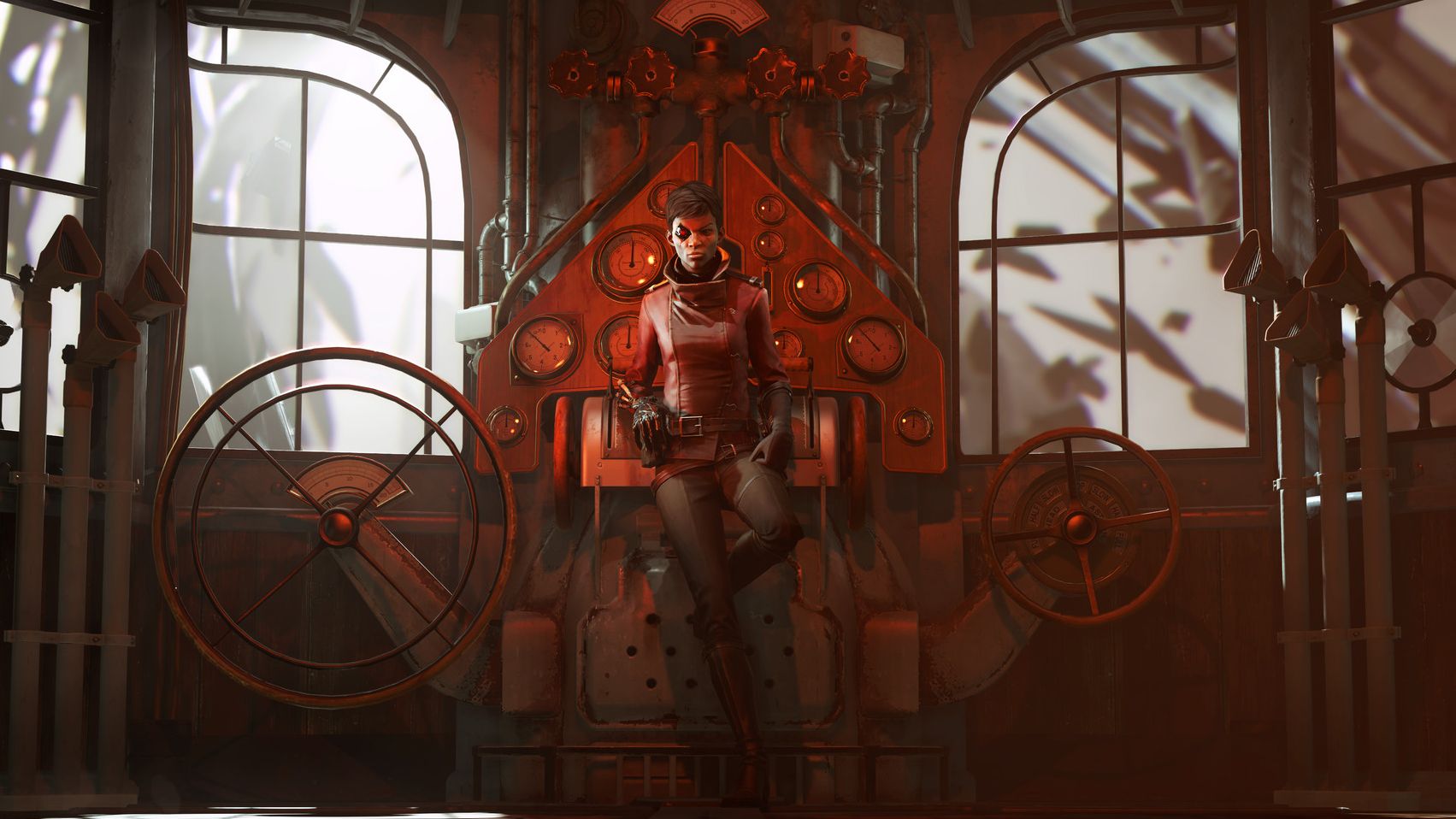
Duval, though, goes back to telling Billie's story: "With Billie, I wanted to tell a story of someone who wasn’t living in a palace like Corvo and Emily." It's a contrast exemplified in Billie's Rat Whispering ability. Arkane needed a narrative device to replace the Empress’s Heart, the item that whispered secrets in Dishonored 2, but one that fit Billie's background as "someone who grew up in the streets and had a different perspective on life and society." In Death Of The Outsdier, Billie can listen to the rats living in the streets of Karnaca. "The rats would tell stories and secrets about the humans living nearby," says Duval. "No palace stories, of course."
"I think part of his story is learning to hope again," says Monforton, when thinking about what she wanted to achieve for The Outsider. "In Dishonored and Dishonored 2, he always expects the worst from you. Now, he can allow himself to hope for something more." And The Outsider isn’t the only one hoping for something better in Death Of The Outsider: Monforton points to Billie also wanting closure and forgiveness throughout the game, and Daud's ultimate goal being to make a difference. To change things.
I think that's what I remember most about Death Of The Outsider. It’s been four years since its release, and I still find myself thinking about it. I’ll remember Death Of The Outsider for its tale of forgiveness in the face of suffering, for its closure on Billie and Daud’s cycles of revenge, and how it yearns for The Outsider, and by extension, the player, to hope for something better. If Death Of The Outsider is to be the final entry in the Dishonored saga, I couldn’t imagine a better closing chapter - or indeed, a better response to Le Guin's The Ones Who Walk Away From Omelas. While most accepted it and some left, it seems strange that nobody in Omelas ever thinks that freeing the child is an option at all.










![The Year of Incline [2014] Codex 2014](/forums/smiles/campaign_tags/campaign_incline2014.png)






